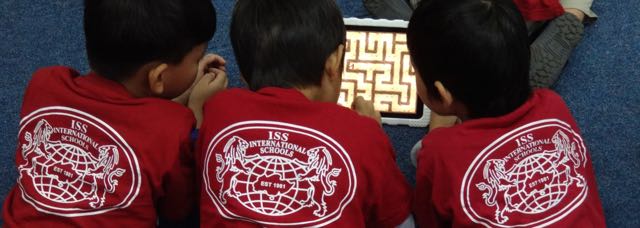
As a PYP school, we work hard to embed all essential elements in our explicit and hidden curriculum. Our units are conceptually driven through key questions, student-centred inquiry and open-ended assessment. Integration is achieved through collaborative planning and co-teaching, so that concepts, skills & knowledge are explored in varied contexts. Action is provoked, facilitated or simply observed, as students respond in unique and unexpected ways. Learner Profile traits and Attitudes are evident in unit planning, assessment design and classroom dialogue. Modelling, discussion and reflection build habits of mind for lifelong learning.
Sounds perfect, right?
Certainly not!
Just like our students, we are in a constant state of iteration. We experience confusion, frustration, despair, progress, momentum and pride – sometimes all in one day. Our documentation is comprehensive, repetitive and/or sparse, depending on the area of focus. Meetings include cognitive conflict and plans oft go awry. Surely, each teacher would have a different opinion on the extent to which we are achieving the sweeping statements in the first paragraph!
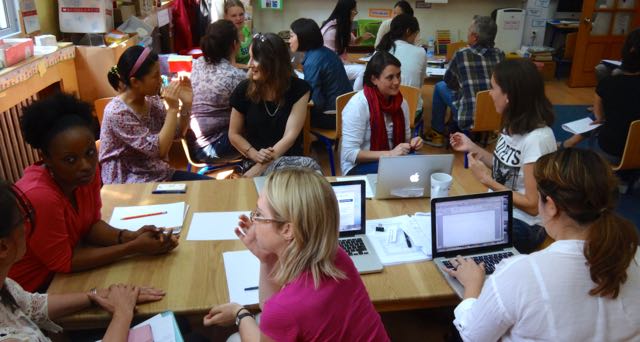
And yet, we are all committed to the PYP and respect the talent in our team. We continue to share & strive, as we implement the PYP for the benefit of our students and our own professional growth.
March Madness:
Reflections on Celebration
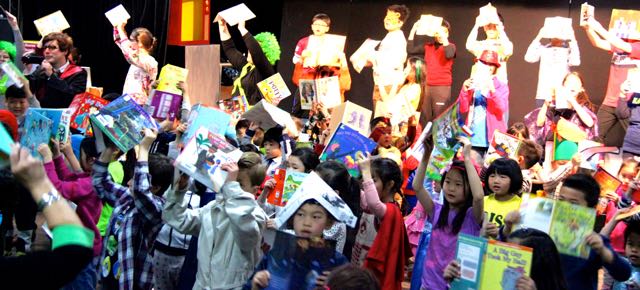
This month has been especially busy in our Elementary School, due to a series of wonderful events, such as a Musical, Book Week, Art Exhibition, Student Led Conferences and a Talent Show.
As we pick our exhausted teachers up off the floor, and tinker with next year’s calendar to avoid such a crush, I am thinking more broadly about the benefits of each school event.
At what point do pre-planned events become obstructive to the authenticity of an inquiry-based curriculum?
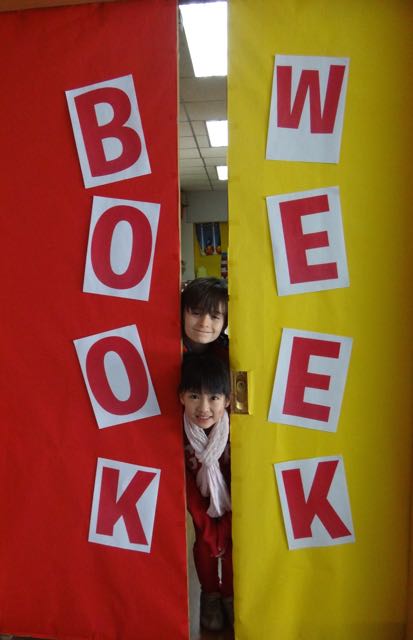 Obviously, there is a clear and valid purpose for each event. For example, Book Week is an opportunity to promote quality literature, re-ignite passions for reading, and enjoy Mother Tongue storytelling. The Art Exhibition enables us to showcase the integration, subject-specific skill development and creativity, which unfold in this magical studio each day.
Obviously, there is a clear and valid purpose for each event. For example, Book Week is an opportunity to promote quality literature, re-ignite passions for reading, and enjoy Mother Tongue storytelling. The Art Exhibition enables us to showcase the integration, subject-specific skill development and creativity, which unfold in this magical studio each day.
Furthermore, the calendar is honed each year so that events enrich current inquiries, rather than detracting from them. For example, several grades chose to align their How We Express Ourselves Unit with Book Week this year, to make meaningful connections and capitalize on planned activities.
Fortnightly assemblies, while pre-planned in the calendar, are student-led, for optimal authenticity. Children develop communication skills, confidence and responsibility, as they share their learning with an appreciative audience, without any expectation of a polished performance.
At each assembly, we highlight ways in which the Learner Profile has been “lived” across the school, through a video of student work samples, quotes or actions. (See here, all credit to Jennifer Le Varge, PYP Coordinator).
At special events such as Book Week or Talent Shows, traditional competitions are reconceptualised, to highlight Attitudes or Learner Profile traits in the student participants.
In this way, our events repeatedly communicate important messages about what we value, our common language, what inquiry looks like, and the fact that each child’s progress is worth celebrating. At each event, we are building home-school connections and strengthening our community. Students’ sense of belonging, inclusion and wellbeing is often heightened. Memories are made, parents are engaged, and reflection is increased, as the visibility of learning is high.
So far, so good.
It’s easy to justify.
And it is true.
But…are there more authentic ways to achieve these benefits?
Yes.
Units of Inquiry often culminate naturally in a moment (or several), which may be shared and celebrated beyond the classroom.
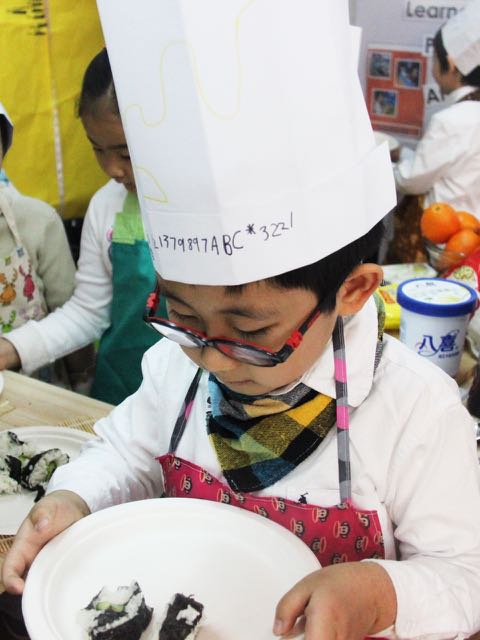 For example, this year, we’ve witnessed a class restaurant, a film festival, an art auction, a miniature-school installation and a bike license testing day…(not to mention many virtual intiatives, via blogs and social networks). Each of these “events” has emerged naturally from student inquiry. Not one was planned in the preceding year. Not one was a repeat of what occurred the last time that Unit was taught. Each is a credit to the teachers who allowed students to drive inquiries and take action. Each extended beyond that class to engage other students, teachers and parents in the learning process.
For example, this year, we’ve witnessed a class restaurant, a film festival, an art auction, a miniature-school installation and a bike license testing day…(not to mention many virtual intiatives, via blogs and social networks). Each of these “events” has emerged naturally from student inquiry. Not one was planned in the preceding year. Not one was a repeat of what occurred the last time that Unit was taught. Each is a credit to the teachers who allowed students to drive inquiries and take action. Each extended beyond that class to engage other students, teachers and parents in the learning process.
And…each achieved the same benefits as a pre-planned, whole school event…only far more effectively! Being student-owned, they created much deeper understanding, memory and reflection, than those planned by adults.
By allowing March Madness to descend upon teachers, we risk limiting the “space” in any day/week for student-led action to occur and unfold to its fullest extent. For teachers to truly support student action, they must have time. Time to listen; time to notice; time to think; time to change direction and gather different resources. It takes time to let a chaotic, non-linear, beautiful student-led initiative unfold.
If our calendar contains too many pre-planned events, we risk jeopardising the integrity of our inquiry curriculum.
(Note: action in the PYP is not defined as an “event” or a large-scale intitiative. For the purpose of this reflection, these initiatives are being categorised as one form of action. Action is any response to learning and we have a much broader working defintion in our school.)
Where to from here?
Will we cancel Book Week? Not yet.
Will we analyse the balance and busyness of our school calendar? Definitely.
Will we consider ways to re-conceptualise school events? Definitely.
In doing so, we hope to empower student action.
For example, should Book Week be the Librarian’s responsibility?
We’ll look at ways to hand over the reins, so that school events are actually student-driven culminations of learning. Book Week may look and feel different if it is embedded in a Grade 2 storytelling inquiry.
In this model, we need to be prepared for students to set the focus and scope of any action. We also need to accept that traditional events may not occur each year, depending on their responses to learning .
We’ve taken some steps down this path already, with our Grade 5 Leaders, who have begun to transform the school calendar. Their initiatives, such as “Be Confident, BISS” and “Well-Balanced Day” certainly put our traditional Talent Show to shame!
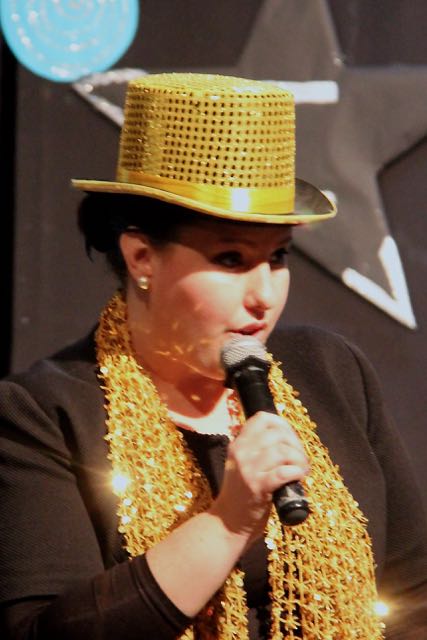 I need to honour our commitment to inquiry by creating more time & space for student-led action in our school calendar.
I need to honour our commitment to inquiry by creating more time & space for student-led action in our school calendar.
It’s time to put down the microphone so that students may share & celebrate learning in their own time, on their own terms.



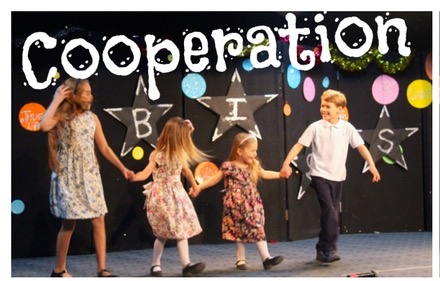

No Comments
Join the conversation and post a comment.
Trackbacks/Pingbacks